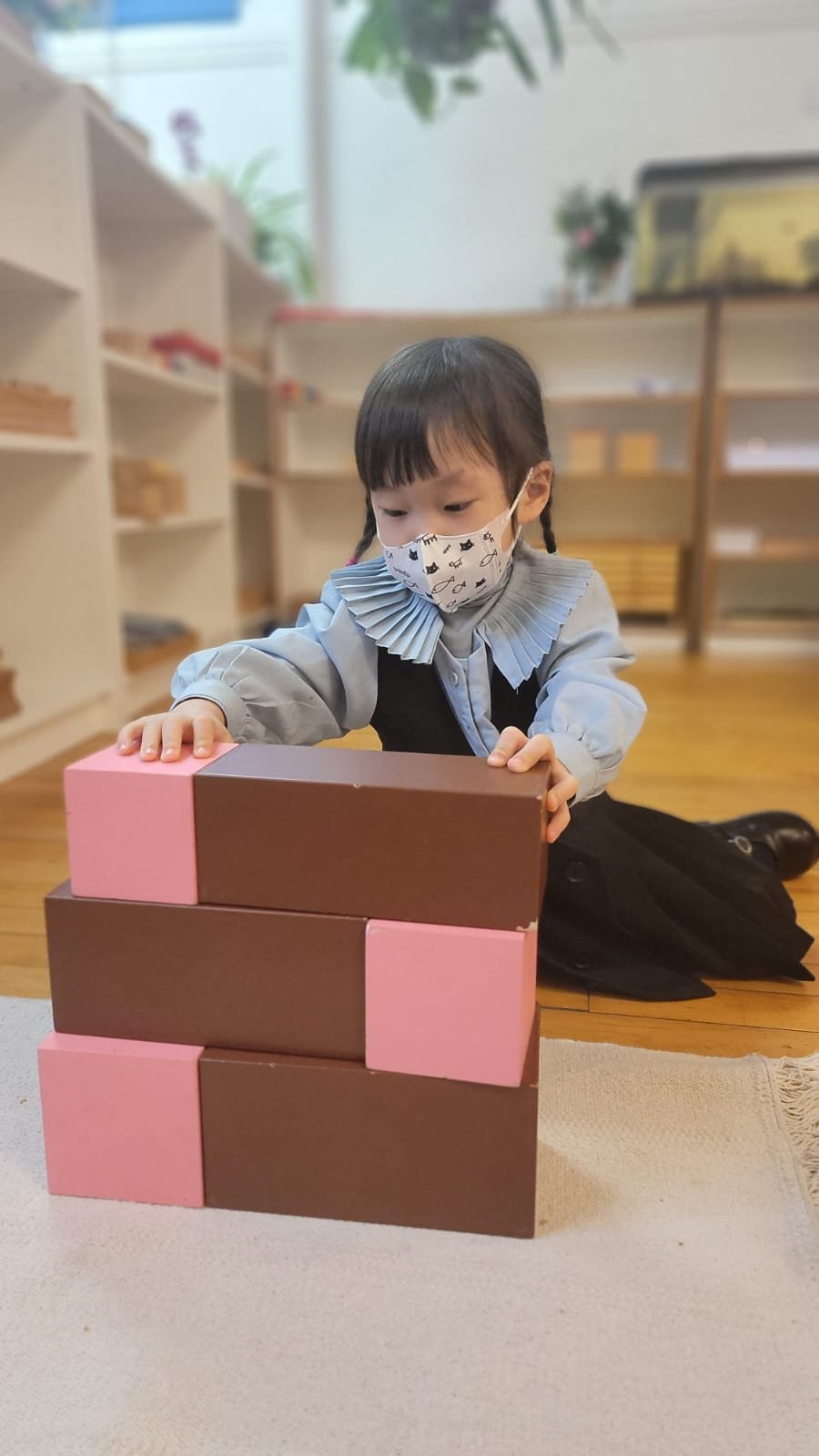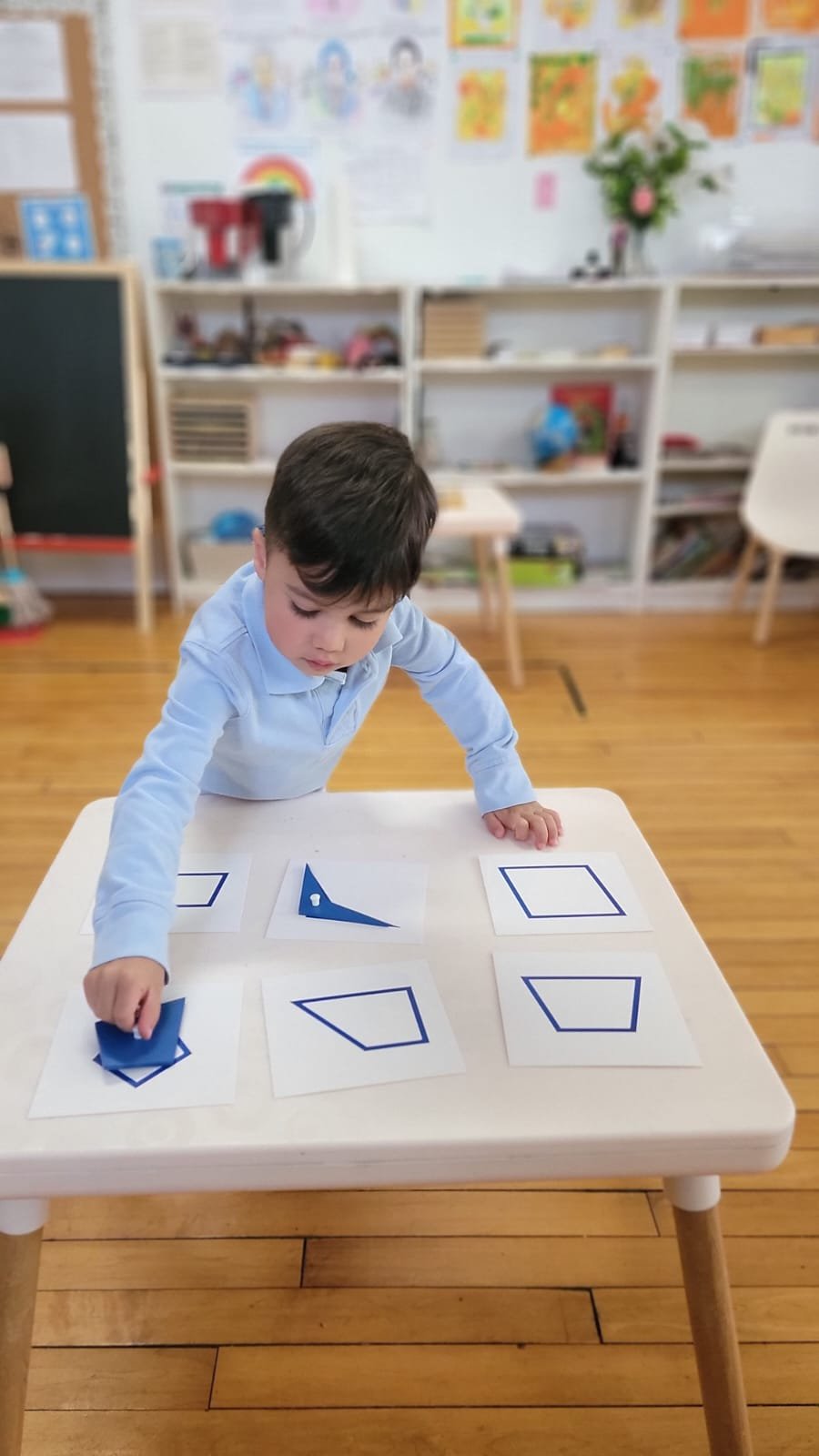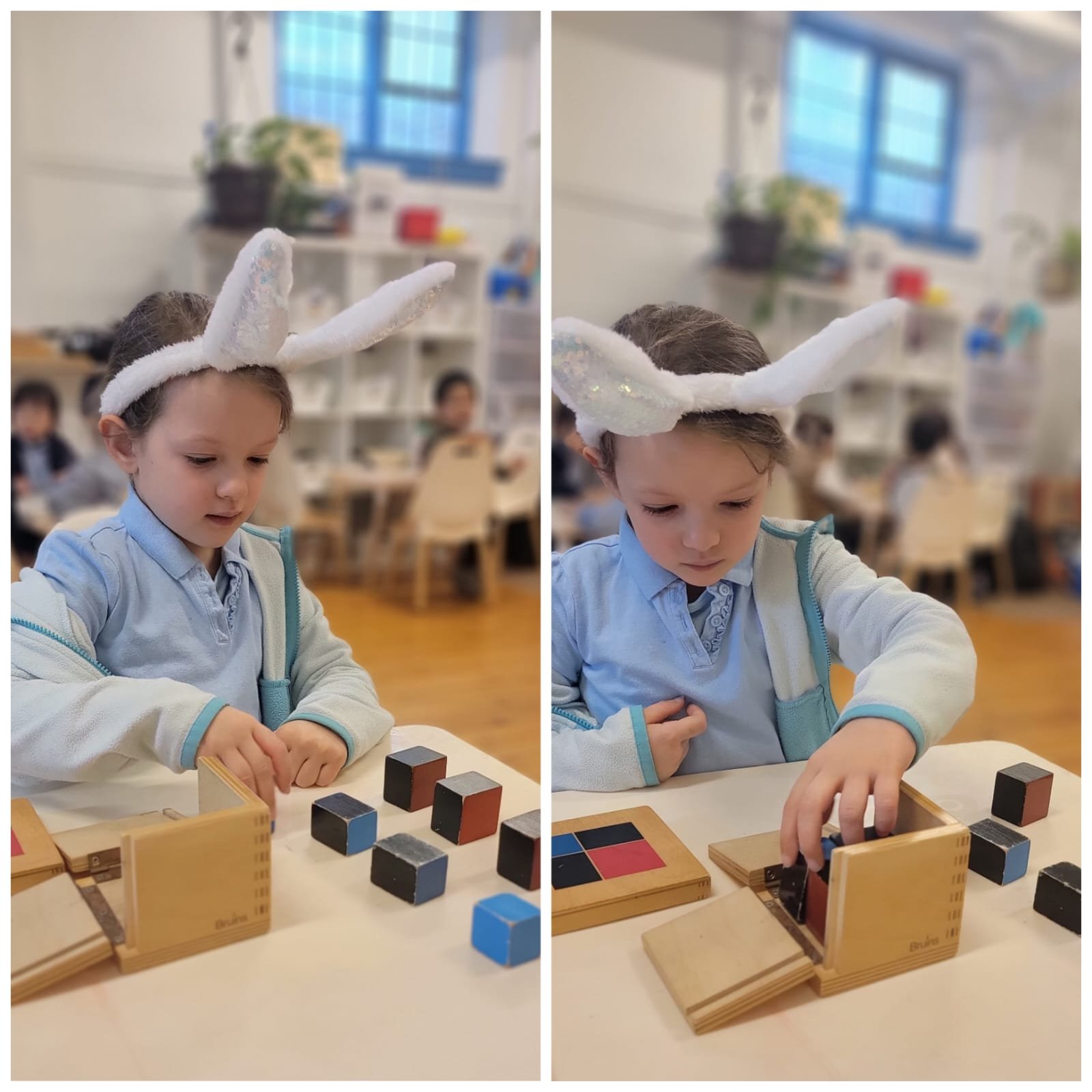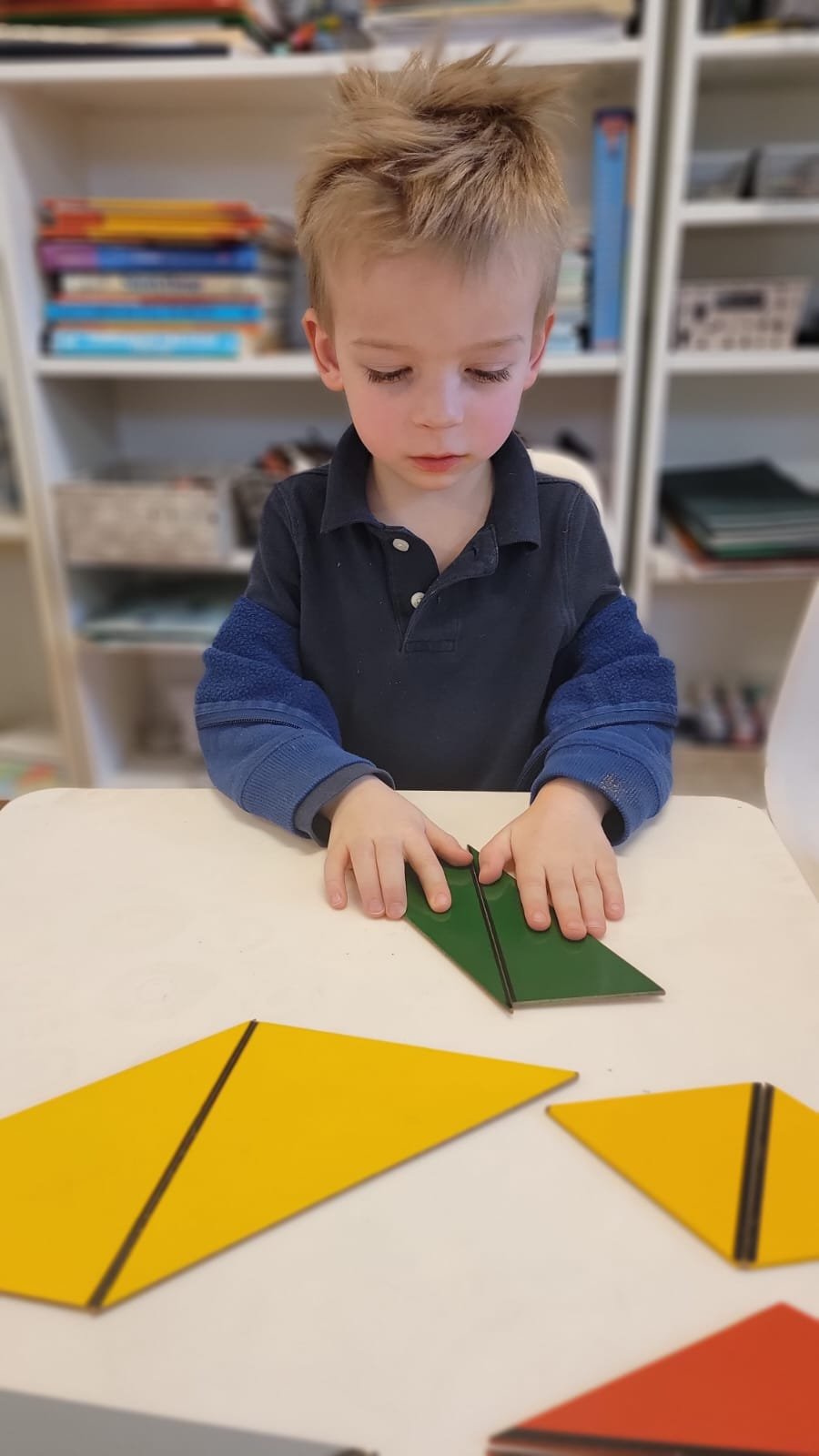We've opened up spots to book in-person tours!
Blog
Sensorial Learning
Montessori education emphasizes the importance of sensorial learning, as it helps children to explore and understand the world around them through their senses. The sensorial materials in a Montessori classroom are designed to provide children with opportunities to refine and develop their senses, including their sense of sight, touch, taste, smell, and hearing.
The sensorial materials in a Montessori classroom are carefully designed to isolate individual sensory experiences, allowing children to focus on and develop a particular sense at a time. For example, the Pink Tower, a set of ten blocks varying in size, allows children to explore spatial relationships and develop their visual discrimination skills. The Material for the Sense of Touch, a set of textured cylinders, encourages children to explore and differentiate different textures through touch.
Through sensorial learning, children in a Montessori classroom develop important cognitive, perceptual, and motor skills. They also gain a greater understanding of their own bodies and the world around them, which can help to foster a sense of curiosity and wonder. The focus on sensory experiences in Montessori education also helps to promote the development of the whole child, including their emotional, social, and physical development.
- Tags:
- Montessori Education




